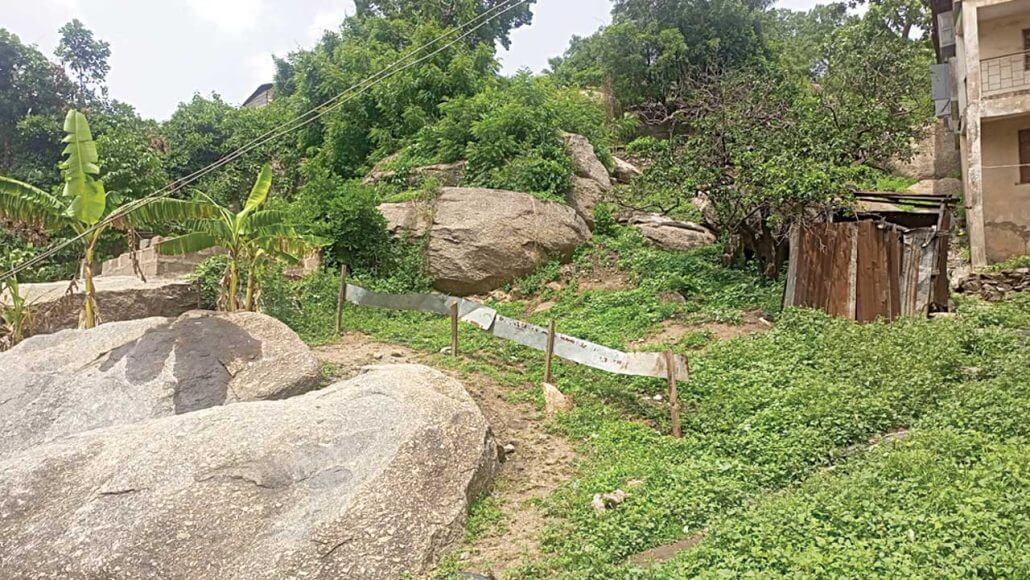With just two years to the year 2025 deadline set by the Federal Government to ensure Nigeria is open defaecation free, in line with the revised global targets set by the United Nations, the country is not in any way near the target.
In November 2018, former President Muhammadu Buhari declared a state of emergency in the water, sanitation, and hygiene (WASH) sector and launched a national campaign, tagged: ‘Clean Nigeria: Use the Toilet to jump-start the country’s journey towards becoming open defaecation-free by 2025.’ Five years down the lane, reports are suggestive that more Nigerians use water bodies, open fields, forests and bushes as convenience.
According to the United Nations International Children’s Emergency Fund (UNICEF) and the World Health Organisation (WHO) joint report, lack of toilets remain one of the leading causes of illness and death among children.
Of all the 774 local councils in the country, only 100 was declared Open Defecation Free (ODF), as of December 2022 – meaning that every resident has toilet facilities at home and in public places. This is considered as an improvement from 33 councils recorded in 2020.
The former Minister of Water Resources, Mr. Suleiman Adamu, who made the revelation in Abuja, said the 100 councils were in 13 out of the 36 states of the federation and the Federal Capital Territory (FCT), Abuja.
Providing a breakdown, the minister said Jigawa was the first open defaecation free state, as all 27 councils had been certified open defecation free.
Other lucky states include Anambra, which has three open defaecation free councils; Akwa Ibom – one; Bauchi – seven; Benue – nine; Borno – two; Cross River – six; Kano -11; Kaduna – five; Katsina – 24; Osun – one; Yobe – one; and Zamfara – three.
The minister recalled that as at 2017, only one council – Obaniluku, in Cross River State was open defaecation free. Sadly, Ogun State is conspicuously missing among the list of the lucky states, despite the much-hyped plans and efforts reportedly put in place.

For instance, in year 2020, the state government said a document, which would serve as guiding template/working tools, by all and sundry, for the attainment of open defaecation free status, had been developed for adoption.
A former Commissioner for Rural Development, Taiwo Oludotun, who disclosed this at a sensitisation workshop on “Clean Ogun State-Use the Toilet,” said the state government had mobilised high-level political support and other necessary resources, towards building a new culture for safe and sustainable sanitation.
Despite these moves, the state is still far from nipping the menace in the bud. Investigations showed that many communities, especially at the state capital, still suffer absence of toileting facilities.
Some of the communities are Ago-Ika, Ijemo, Sapon, Totoro, Ijemo-Olokuta, Ijemo Agbadu, Idi-Aba, Sokori, and Oke Itoku, among others. For years, according to investigations, while some of the residents defaecate in bush paths and canals, others, especially residents living around river banks, empty their bowels in riversides and refuse dumps, which make the areas stink regularly of faeces and urine, thereby exposing residents to danger.
The Guardian investigations reveal that in some of the communities without household toilet facilities, residents, especially women and children walk long distances from home to find convenient places to relieve themselves. This predisposes them to different forms of assault and abuse.
During the visit to some of the communities, it was observed that many walkways and nearby bushes reek of urine and decaying faecal matter. It was also discovered that some of the houses have made provision for makeshift toilet facilities with corrugated iron sheets, where they pass their faeces in nylons or plastic bowls and empty them into drainage channels.
Investigations revealed that though the Community Development Associations (CDAs) have been at the forefront of addressing this menace, their efforts only yielded little or no result as the situation seems to have overwhelmed them.
The Secretary of the Oke-Itoku CDA, Mr. Kehinde Oluyemi, who lamented the situation in his community, confirmed that there are several houses in the community without toilet facilities. He said they have been discharging their excretion into nearby bushes, regretting that tenants have been moving out in their large numbers to areas where the facilities are readily available.
He said: “Oke-Itoku has been in existence for over 100 years, and the community has been battling with the challenge for many years. Some of the affected houses partner with neighbouring houses to share toilets.
“Those who couldn’t share or find any other ideal means of discharging excretion, are using nearby bushes, dump sites and drainage channels. Majority of the residents,
especially tenants, have relocated to other areas of the town where they’ll have the grace of having toilet facilities.”
When The Guardian visited Ago-Ika community, one of the landlords, Mr. Aminu Ojo, said occupants of most houses in the community resorted to defaecating in bushes and dump sites due to the high cost of providing toilet facilities.
At the Sokori area, the stench that welcomes the reporter along a footpath linking Ita-Eko was unexpected within a city. Investigation shows that some use the bank of the flowing river to defaecate, while those who defaecate in polythene nylons and plastics overnight, empty the content into the water.
One of the mechanic apprentices around the area, who gave his name simply as Jacob, said the practice is an eyesore, which the community leaders have tried to curb but yielded little or no result as most residents carry out the dastardly act in the wee hours.
In the Oke-Ijeun area, the Social Welfare Officer of the community, who is also a landlord, Mr. Idris Jolaoso, confirmed the development in the area. He noted that the majority of the houses within the Oke-Ijeun community couldn’t afford to erect toilets.
He said: “Majority of the public toilets built by the government in the olden days have been demolished to pave way for road construction and other developmental projects. Currently, like the saying that all fingers are not equal, the majority of the house owners cannot afford to erect toilets. These categories of people pass their faeces in nylons and dispose of them off on the refuse dump sites; others excrete inside the drainages and canals.”
Though there are no government interventions on the menace in the affected communities, in terms of physical structures, as observed during the visit, it was learnt that government has been in the forefront of putting an end to open defaecation in the affected areas through the ministry of environment via series of engagements, campaigns and advocacy to ensure the problem is addressed.
This was substantiated by Oluyemi: “What they are doing, in collaboration with the CDAs, is the campaigns and orientations on the danger of engaging in open defaecation, because many do not know that it is a silent killer.”
According to a medical expert, Adekunle Job, he attributed open defaecation to cases of cholera and diarrhoea, warning that the practice could lead to an outbreak of air or water-borne diseases.
He lamented that the indiscriminate disposal of human wastes, especially when rain falls could be washed into nearby well water or streams that people consume, which would eventually lead to widespread epidemics that may lead to death of many or strange diseases.
The Commissioner for Environment, Ola Oresanya, told The Guardian that the state government has already identified those areas, which he described as traditional areas with traditional buildings.
“Talking about the traditional communities, we are building what we call the communal-shared facilities for them. This is because most of the houses have about a third generation of people that are living there and those homes are without toilets. Those located on the bank of Ogun River and traditional buildings have been dumping their faeces into the river bank. That is one major area that we have met with their CDAs and we have discussed with them.
“Many of them said they don’t have money to construct the toilet, so we have given them a timeline and the timeline is 12 months for them to commence their shared facility, otherwise we’ll seal up some of the houses and they may be forced out because we cannot continue to allow them to defaecate into that river.
Oresanya disclosed that the state government has executed some key things to nip the menace in the bud, which include policy review, infrastructure, education and enforcement.
The Commissioner promised that the state government will continue to enlighten the CDAs, especially in those blighted areas – the indigenous areas where they have the habit or tradition that is very obnoxious. “We’ll continue to engage them and let them see enforcement, so that continuous education will help us to reduce the menace.”
The Guardian learnt from community leaders, residents and stakeholders in the affected communities that the series of interventions have begun to yield results as a good number of the houses have successfully built their toilets, while others are on the verge of starting.
It was confirmed that the level of open defaecation in the affected areas and beyond have been reduced to the barest minimum. So far, about 15 toilets have been completed, some of which were built by the private sector, who were given land, and authorised to build in line with the state’s model for easy accessibility of the residents.
Investigations revealed that through government’s consultations with the CDAs, a good number of the houses are adopting the option of joining three to four houses to build a common facility together, coupled with the engaging of private operators to build facilities in the communities for a price.
Jolaoso confirmed that, through government’s continuous engagements with the residents and landlords, through sanitary inspectors and health officials from the council, the practice is gradually being nipped in the bud.
The Commissioner revealed that through the engagements with the CDAs and residents, it has achieved a lot in the affected areas, adding that so much has also been achieved around the Ibafo and Mowe axis, notorious for open defaecation on the expressway.
He said the government is focusing mainly on the traditional areas and public places, where people will require convenience, and public institutions, compelling them to have infrastructure that would be accessible for everybody, adding: “That’s our policy direction.”
“What we are doing now is to construct 400 public conveniences (public toilets) across the state, and we started this about four months ago. We have commissioned some of the toilets in Kara, Mowe, Ibafo, Abeokuta, Ilaro, Ifo, Ota, and other areas, especially around public spaces, markets, motor parks.
“About 15 have so far been completed and our policy is to use the infrastructure as a tool of empowerment for our people. So, we allow the private sector to build these toilets – we give them land, we allow them to build in line with our model and we carry out enforcement to support the use of those facilities, so that they can recover their monies within 30 years. After 30 years, those facilities return to the state government…”
The interventions, however, have led to a new discovery, which shows that a good number of the communities have rocky topography, a development that makes it near-impossible for landlords to dig holes, soak away or septic tanks for toilet facilities. This major hurdle makes the interventions look as if it’s not working.
The CDA Secretary of Oke-Itoku, Oluyemi, regretted that the community has been battling with the challenge of the rocks for many years. According to him, many house owners accepted their fate as there seems to be no magic to solve the dilemma. “This is nature, our forefathers who lived here couldn’t fathom any solution, and the best method was for the houses to partner to share toilets or find alternatives.”
However, Oresanya said the state is ready to address the ‘rock challenge’ with the bio-digester option. “The bio-digester option doesn’t require a septic tank; it’s just like a bowl that will digest the excreta. You don’t even need water and it will convert the feces to compost. We have an option for that, so they don’t need to dig any hole,” he said.
This story has been supported by Nigeria Health Watch through the Solutions Journalism Network, a non-profit organisation dedicated to rigorous and compelling reporting about responses to social problems.
Credit: The Guardian






















